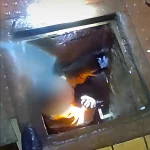BT Explains the Challenges to Delivering Self Install Superfast Broadband
Earlier this week we reported on how BT had launched a new trial that could pave the way for consumers to install their own superfast broadband (FTTC) services, without the need for an engineer visit (here). Sadly there are still some significant technical challenges to overcome, which BT has today been kind enough to discuss with ISPreview.co.uk.
The technical trial of Microfilter devices for BT’s 80Mbps (Megabits per second) capable Fibre-to-the-Cabinet (FTTC) services are an important step forward but there are still some big problems that need to be overcome, not least with the worrying potential for a huge performance loss that can occur in some homes. BT explains.
Advertisement
ISPreview Question 1: Does BT have any existing idea about the expected performance loss of using a Microfilter on FTTC lines (obviously this is what the trial will seek to refine but we assume that you’ve done some internal testing)?
BT’s Answer:
We anticipate that this will vary depending on the quality of the existing home wiring, whether a user installs the service at the master socket or an alternative extension socket and other devices also plugged in. We performed some initial lab testing and some field testing and found mixed performance whereby some lines suffered greater loss (20Mbit/s+ reduction in speed) than others. Since that activity, we have introduced our faster 80/20 speeds which may be exposed to different speed degradation hence the need for the field technical trial.
ISPreview Question 2: What are the other “key enablers” that BT needs to resolve in order to move GEA-FTTC to being a self-install product?
BT’s Answer:
There are a few areas that we are developing so we can support a self-install product:
* We have work to do within our network to be able to manage any lines which, as a result of poor install or wiring, cause noise being sent into the network which might affect other users.
* We have to update our test and diagnostics systems to differentiate between the installation types so that we direct faults appropriately
* We have to build the appropriate self-install products into our NGA portfolio, and supporting management and billing systems
ISPreview Question 3: What are the chances of BT being able to deliver a self-install solution within the next 12-18 months?
BT’s Answer:
It very much hinges on the outcomes and findings of the trials, the participation of CPs in trials and pilots, and our joint ability to align the delivery of any key enablers that are deemed to be showstoppers once we’ve obtained the trial learning. We are hopeful.
The good news is that BT are still “hopeful” of being able to launch a wires-only / self installable superfast broadband service within the next year or two, which could in theory help to cut the steep setup costs (currently worth up to around £100) and make shorter sub-12 month contract terms viable.
But the question of whether or not consumers will want to go down this path, especially with the potential for a sharp fall in speed, is something that could require greater consideration than was ever given to existing broadband technology.
Mark is a professional technology writer, IT consultant and computer engineer from Dorset (England), he also founded ISPreview in 1999 and enjoys analysing the latest telecoms and broadband developments. Find me on X (Twitter), Mastodon, Facebook, BlueSky, Threads.net and Linkedin.
« UK ISP Allpay Promises FREE Internet for Every Herefordshire Housing Tenant

















































Comments are closed